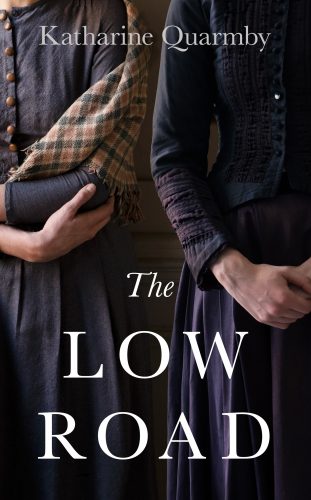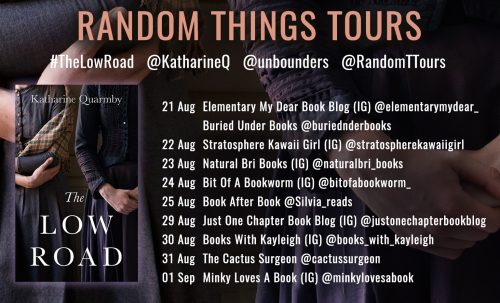
Imagine that you have ended up in prison, as a result of poverty and constrained life choices.
Now imagine being told that you will serve out the rest of your prison sentence on the other side of the world – and you are unlikely to ever find your way home.
Such is the fate facing Hannah Tyrell in Katharine Quarmby’s first fiction work. Hannah is only a teenager but a teenager who had the misfortune to be convicted of a crime when the threat of transportation to Botany Bay was still a very real one and to be an unprotected woman of any age was almost synonymous with degradation.
But first matters first:
What’s it about?
When Mary Tyrell is accused of infanticide, she decides the only solution is suicide. In return, her local parish arrange to have her staked through the heart while her surviving daughter, Hannah, watches and screams.
Rejected by her community for the moral ‘crimes’ of her mother, Hannah is sent to the Refuge for the Destitute in London and soon becomes enamoured with a fellow victim of Georgian ‘morality’, Annie Simpkins. In an effort to stay together, the girls steal from the refuge and are harshly punished.
Transportation to Australia beckons and their paths diverge. Will they ever see each other again?
What’s it like?
I found the historical setting and details really interesting, though some of them passed me by until I did a little research of my own post-reading. (I didn’t understand why one convict arrived at the ship for transportation covered in dirty old food; apparently, people would sometimes hurl rotten food at departing convicts.) The whole concept of transportation was an interesting one and I was a little frustrated that it took so much of the book to reach that point.
The relationship between Hannah and Annie, one of the central threads of the story, was initially comprehensible, but throughout the middle of the story their interactions seemed wild and incoherent, with the narrative designed to facilitate as many points of historical interest as possible – look! pretty girl comes upon the town / discovers religion / is horribly abused – and their own feelings fluctuated so widely that I could not understand why Hannah should seek to find her old friend in the final section of the story. Conversely, Hannah’s relationship with another character in Australia felt a little predictable / inevitable, though I’m sure it was very common indeed – in fact, I imagine that’s why I felt that way!
Final thoughts
I did enjoy reading ‘The Low Road’ and learning about life in this era, but I was more interested in the history than the characters. Quarmby has a habit of telescoping time so that things seem a little abrupt – one moment the prison is not closing and in the next paragraph it is – which means much feels skimmed over, but the moments she does tell in full are touching and the ending leaves much scope for further events to play out, which I liked.
Quarmby’s non-fiction titles sound interesting and I’m tempted to find a copy of ‘Scapegoat: Why we are Failing Disabled People’. I also would like to read more about this time period generally, so I appreciate this book giving me that motivation.
Overall, this was an interesting tale focused on lives that are often neglected and I found the way impoverished women were treated by the majority of the male characters – as chattels, as whores, as problems to be sent away – simultaneously horrifying and accurate to the period.
‘The Low Road’,
Katharine Quarmby,
2023, hardback, Unbound
Many thanks to the author, publisher and Anne Cater’s Random Things Tours for providing me with a copy of this book in exchange for an honest review and a spot on the blog tour.
Want to know more? You can follow the tour:

1 Comment
Thanks for the blog tour support x